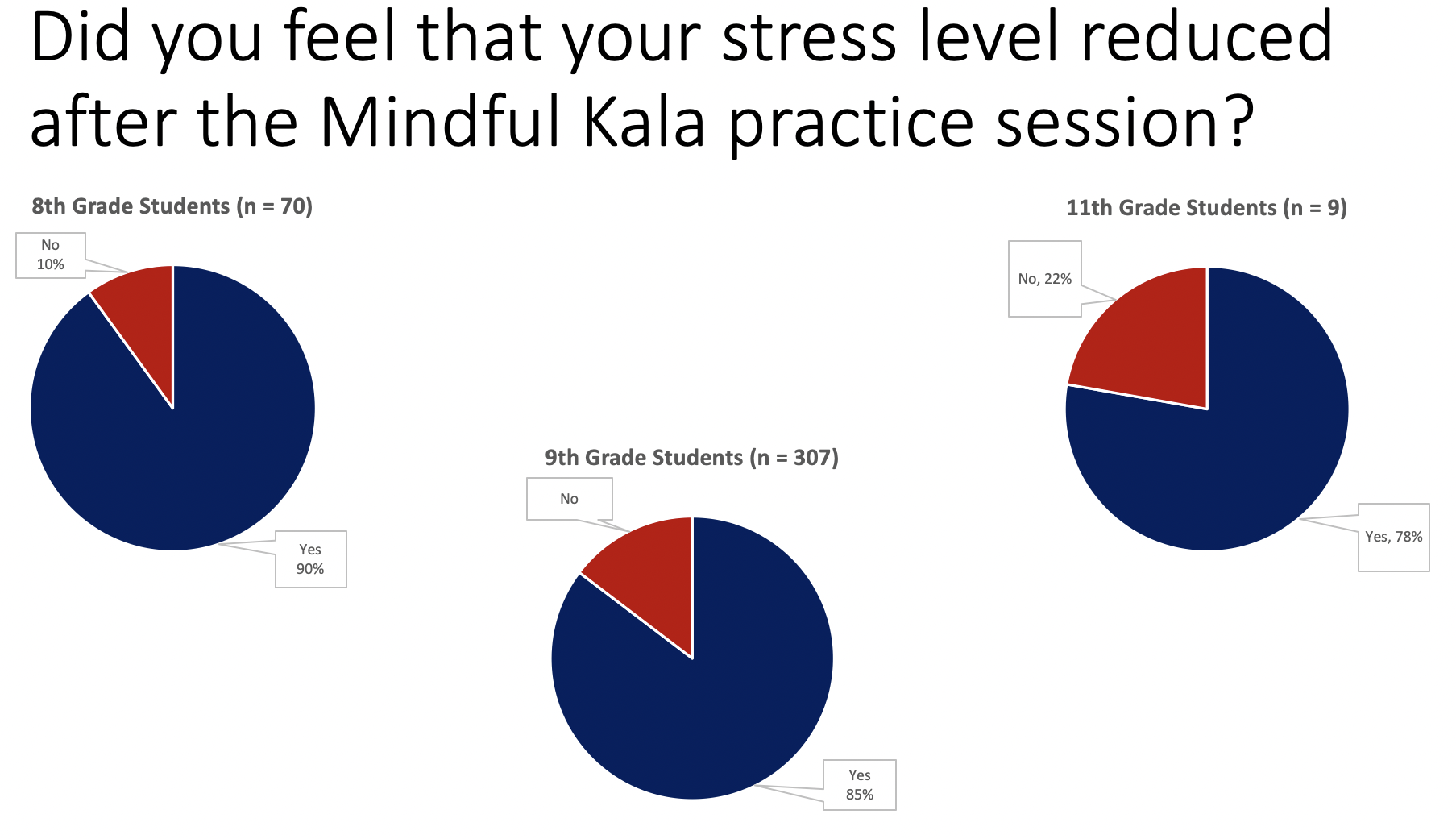
Research & Development
Current Ongoing Research
Randomized controlled trial at Yale University on Digital Mindful Kala
Ongoing IRB-approved randomized clinical study on 4-week digital Mindful Kala course for students at Yale University. The course specifically seeks to help the quality of life outcomes and cultural competency amid the COVID-19 pandemic. The study is conducted with renowned Yale psychology researchers such as Dr. Laurie Santos & Dr. Elizabeth Goldfarb.
Read more about the study here!
User Interface and Experience Evaluation of a Digitized Bharatanatyam based Mindfulness Course, Mindful Kala: A Qualitative Study with Teens & Educators
Using the qualitative focus group methodology, the primary objective of this research study at Northwestern University is to gain a greater understanding of the perceptions and attitudes of educators and teens about a newly developed mindfulness web-app using Bharatanatyam (i.e. Indian Classical Dance) called the Mindful Kala Web-App.
Read more about the study here!
Certified by WI Department of Public Instruction as an evidence-based social emotional learning tool
“Evidence-based” is defined by the American Rescue Plan Act as having the meaning in section 8101(21) of the Elementary and Secondary Education Act - this definition includes tiers of evidence. The team of researchers at UW Madison, Wisconsin in partnership with Wisconsin DPI have conducted a rigorous review of our research and has certified our programming as an evidence-based SEL tool.
Past Research & Findings
Research trial with Northwestern University on an 8-week Live, Mindful Kala Programming among High School Students
Reducing Cultural Bias
This study provides initial evidence for this 8-week Mindful Kala Indian Classical Dance course on improvements in self-awareness of anti-bias behavior among a sample of high schoolers. Anti-bias behavior is used as an indicator of cultural empathy & cultural bias. This offers a novel approach to heighten cross-cultural understanding and challenge the deep-rooted effects of racism on adolescent development.
These findings were published in the Global Advances in Health and Medicine journal & presented at the Academic Consortium for Integrative Medicine & Health (2021).
Increasing Health-Related Quality of Life
This pilot study provides initial evidence for this 8-week Mindful Kala course on improvements in emotional and physical health for adolescents. We found statistically significant decreases in anxiety, depressive symptoms, fatigue, pain intensity & statistically significant increases on peer relationships, body appreciation, body embodiment, and mindfulness. Given increasing life-stressors and risk factors for mood disorders, sedentariness, and overweight among this age group, this program offers a novel approach to address these issues.
Surveys at Middleton-Cross Plains Area School District
Given to 350+ students. Advised by: Dr. David Victorson, Professor of Medical Social Sciences, Northwestern.











